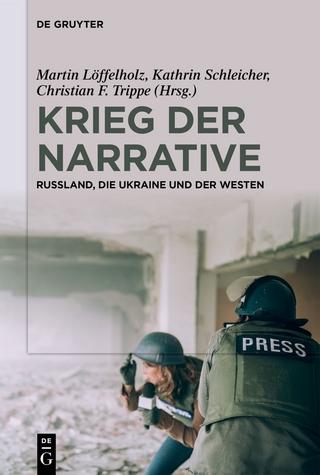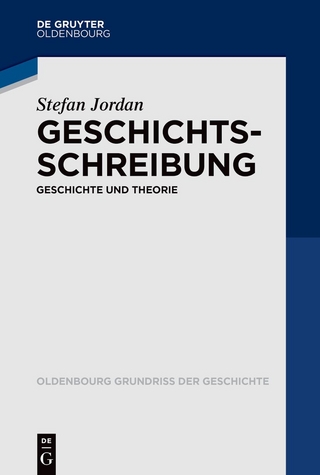
The Lettered City
Seiten
1996
Duke University Press (Verlag)
978-0-8223-1757-9 (ISBN)
Duke University Press (Verlag)
978-0-8223-1757-9 (ISBN)
Provides an overview of the power of written discourse in the historical formation of Latin American societies, and highlights the central role of cities in deploying and reproducing that power. Starting with the colonial period, this title undertakes a historical analysis of the hegemonic influences of the written word.
Posthumously published to wide acclaim, The Lettered City is a vitally important work by one of Latin America’s most highly respected theorists. Angel Rama’s groundbreaking study—presented here in its first English translation—provides an overview of the power of written discourse in the historical formation of Latin American societies, and highlights the central role of cities in deploying and reproducing that power. To impose order on a vast New World empire, the Iberian monarchs created carefully planned cities where institutional and legal powers were administered through a specialized cadre of elite men called letrados; it is the urban nexus of lettered culture and state power that Rama calls “the lettered city.”
Starting with the colonial period, Rama undertakes a historical analysis of the hegemonic influences of the written word. He explores the place of writing and urbanization in the imperial designs of the Iberian colonialists and views the city both as a rational order of signs representative of Enlightenment progress and as the site where the Old World is transformed—according to detailed written instructions—in the New. His analysis continues by recounting the social and political challenges faced by the letrados as their roles in society widened to include those of journalist, fiction writer, essayist, and political leader, and how those roles changed through the independence movements of the nineteenth century. The coming of the twentieth century, and especially the gradual emergence of a mass reading public, brought further challenges. Through a discussion of the currents and countercurrents in turn-of-the-century literary life, Rama shows how the city of letters was finally “revolutionized.”
Already crucial in setting the terms for debate concerning the complex relationships among intellectuals, national formations, and the state, this elegantly written and translated work will be read by Latin American scholars in a wide range of disciplines, and by students and scholars in the fields of anthropology, cultural geography, and postcolonial studies.
Posthumously published to wide acclaim, The Lettered City is a vitally important work by one of Latin America’s most highly respected theorists. Angel Rama’s groundbreaking study—presented here in its first English translation—provides an overview of the power of written discourse in the historical formation of Latin American societies, and highlights the central role of cities in deploying and reproducing that power. To impose order on a vast New World empire, the Iberian monarchs created carefully planned cities where institutional and legal powers were administered through a specialized cadre of elite men called letrados; it is the urban nexus of lettered culture and state power that Rama calls “the lettered city.”
Starting with the colonial period, Rama undertakes a historical analysis of the hegemonic influences of the written word. He explores the place of writing and urbanization in the imperial designs of the Iberian colonialists and views the city both as a rational order of signs representative of Enlightenment progress and as the site where the Old World is transformed—according to detailed written instructions—in the New. His analysis continues by recounting the social and political challenges faced by the letrados as their roles in society widened to include those of journalist, fiction writer, essayist, and political leader, and how those roles changed through the independence movements of the nineteenth century. The coming of the twentieth century, and especially the gradual emergence of a mass reading public, brought further challenges. Through a discussion of the currents and countercurrents in turn-of-the-century literary life, Rama shows how the city of letters was finally “revolutionized.”
Already crucial in setting the terms for debate concerning the complex relationships among intellectuals, national formations, and the state, this elegantly written and translated work will be read by Latin American scholars in a wide range of disciplines, and by students and scholars in the fields of anthropology, cultural geography, and postcolonial studies.
Angel Rama, one of Latin America’s most distinguished twentieth-century men of letters, was a noted literary critic, journalist, editor, publisher, and educator. He left his native Uruguay following the military takeover and taught at the University of Venezuela and the University of Maryland. He died in 1983 in a plane crash near Madrid. John Charles Chasteen is Associate Professor of History at the University of North Carolina, Chapel Hill. He is the translator and editor of Tulio Halperín Donghi’s The Contemporary History of Latin America, also published by Duke University Press.
| Reihe/Serie | Latin America in Translation |
|---|---|
| Übersetzer | John Charles Chasteen |
| Verlagsort | North Carolina |
| Sprache | englisch |
| Gewicht | 454 g |
| Themenwelt | Geisteswissenschaften ► Geschichte ► Geschichtstheorie / Historik |
| Sozialwissenschaften ► Soziologie | |
| ISBN-10 | 0-8223-1757-5 / 0822317575 |
| ISBN-13 | 978-0-8223-1757-9 / 9780822317579 |
| Zustand | Neuware |
| Haben Sie eine Frage zum Produkt? |
Mehr entdecken
aus dem Bereich
aus dem Bereich
Russland, die Ukraine und der Westen
Buch | Softcover (2024)
De Gruyter (Verlag)
CHF 55,90
Geschichte und Theorie
Buch | Softcover (2024)
De Gruyter Oldenbourg (Verlag)
CHF 34,90
wie Irritationen historisches Denken anregen
Buch | Softcover (2024)
Kohlhammer (Verlag)
CHF 96,55


